The fascinating story of a tiny MMO that became a free-to-play juggernaut
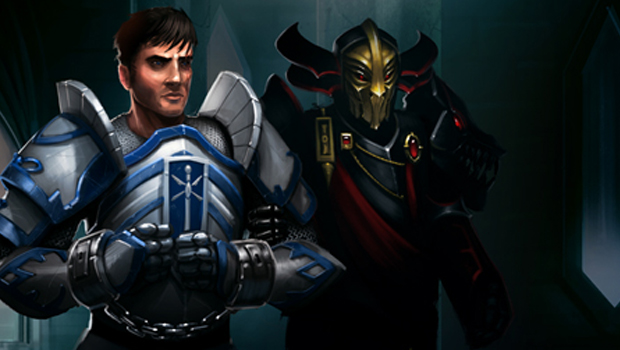
Rune with a view
Have you heard of RuneScape? Silly question, perhaps. This browser-based MMO built by a quiet Cambridge studio has amassed an astonishing audience (220 million sign-ups) since it went live in 2001. Developer, Jagex, has created hundreds of adventures, earned five entries in the Guinness book of records, battled an invasion of internet bots, and presided over the success of a free-to-play experiment that was a decade ahead of its time.
You can attribute much of RuneScape's success to its ability to shift with the whims of its huge, hungry player base, so let's take a deeper look at the major milestones of its evolution. Here's a 12-part potted history of the biggest game many have never played.
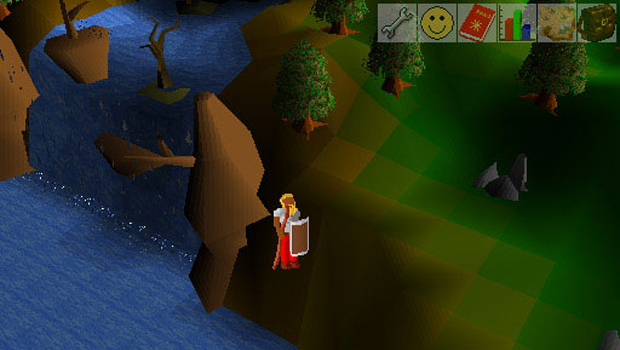
RuneScape launches in 2001
Inspired by text-based MUD RPGs, the first iteration of RuneScape is an entirely free browser game that lets players run around a persistent world, chatting and questing from an angled, top-down perspective. Design director Mark Ogilvie remembers RuneScape's humble first iteration as a hobby project supported by website banner ads. "We were happy to have a game that worked and could be played, and was, most importantly, fun," he says. "We bought as many servers as we could afford using the income from the advertising we ran, but the servers were always full."
Later, the implosion of the dotcom bubble encourages Jagex to introduce a premium payment option, but that doesn't stop RuneScape from attracting thousands of players. The initial version of RuneScape looks crude by today's standards, but it provides a stable platform for a decade of constant change.
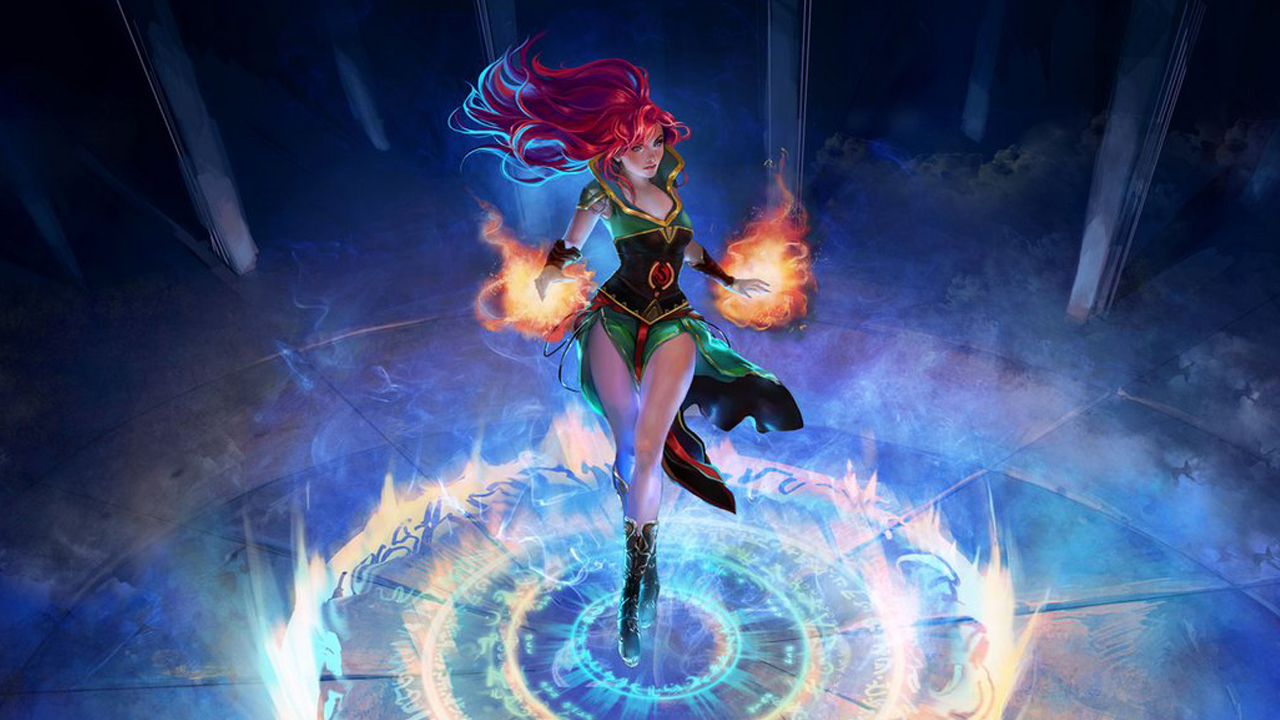
A kind of magic - RuneScape grows
RuneScape grows in complexity quickly after launch with the introduction of magic (in good and evil variations, back then), more complex crafting, pickpocketing skills and more. In the early 2000s, the promise of a streaming browser-based MMO that supports chat is novel enough to attract an audience, and the generous free membership keeps players flowing in. That gives RuneScape vital space to grow in the coming years, though it's soon obvious that a significant visual upgrade is needed before RuneScape's more innovative features can be added.
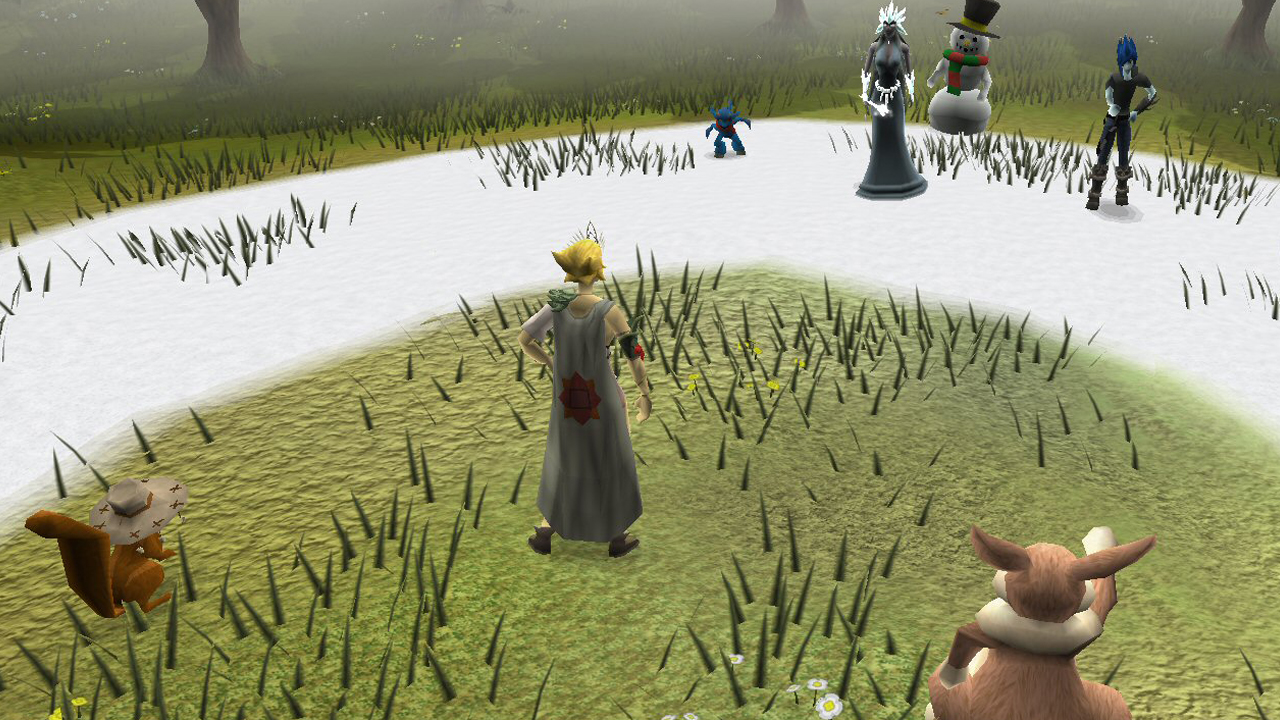
2004 - RuneScape 2 arrives
The notion of completely rewriting an MMO's engine and transitioning seamlessly from old system to new seems insane, but in 2004 Jagex does exactly that for RuneScape. The vast RuneScape 2 update affects almost every system in the game, but while the name implies a sequel, the game's fundamentals remain intact. Player stats, items and progression survive the transition, but suddenly characters are represented by polygonal 3D models rather than the 2D sprites of old. Combat is also rewritten, PvP moves into duelling arenas and new animations and models are created for every character. It's a vital bit of future-proofing that serves RuneScape well for nine years until the launch of RuneScape 3.
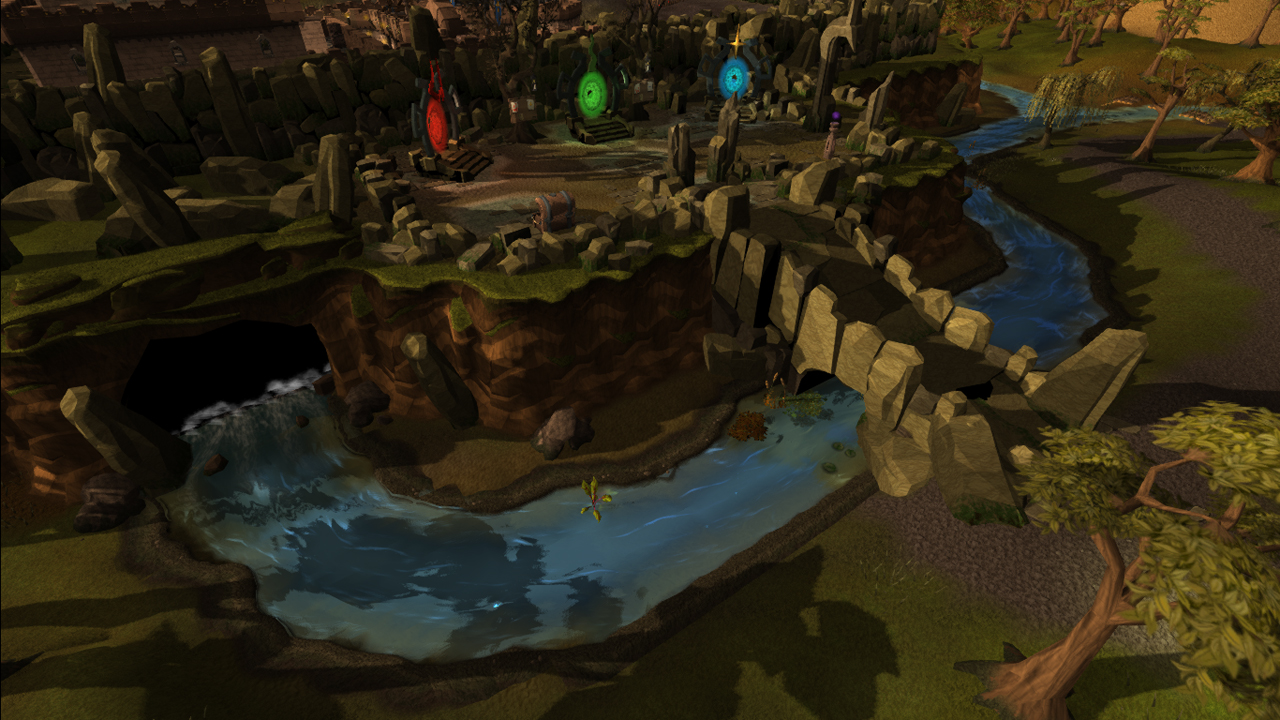
Castle wars - the start of a more structured game
One of RuneScape's most popular player vs. player arenas launches in 2004. Two fortresses face one another across a combat map, and players from each side must steal the others' standard to win. Well-placed barricades and a sensible use of RuneScape's ranged and melee classes are the keys to victory. Players rush to meet the challenge.
Castle Wars is a smartly constructed competitive environment that succeeds within RuneScape's strict technical limitations, but it's also indicative of a trend that sees RuneScape move from a slightly chaotic, sandboxy environment to something more structured. The constant stream of new features offer players different paths in which to excel according to their personal tastes, and RuneScape's low-fi flexibility allows the developers to create varied systems to support this. The range of activities added to RuneScape over the years speak to the game's core ethos, which suggests that with enough features and weekly updates, an MMO can be everything to everyone.
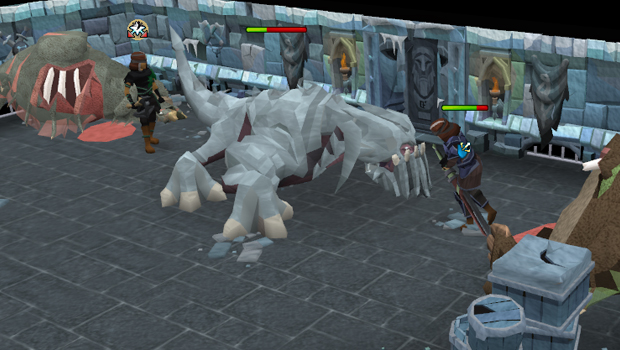
Dungeoneering - players get social
Beneath the ancient castle of Daemonheim there are layers and layers of dark catacombs. Players have been raiding them relentlessly since 2010. "Dungeoneering" offers players a moreish mix of traditional exploration, combat and puzzles, and they're prized by veteran designer, Mark Ogilvie, who describes them as "our homage to the table top RPGs that inspired us in the first place."
For players, it's a fresh way to socialise. RuneScape has always had its hardcore challenges, but it originally became popular as a forum for young players who wanted to meet up and talk. The introduction of elements like Dungeoneering mark RuneScape's gradual evolution from a chatroom to a theme park. That's not to suggest Dungeoneering is a casual activitythe bosses tucked away in Daemonheim's labyrinths are no joke.

London calling - RuneScape gets its own 'fest'
In summer 2010 Jagex organise a meet up with players that becomes an annual event called Runefest. It takes place in London and gives fans a glimpse of upcoming features and designs. 'Golden Gnomes' are also awarded for top entries in Jagex' inaugural video competition, and a bunch of in-game activities share the celebration with the wider RuneScape community.
It's a significant escalation in Jagex' contact with players, largely restricted to to forums and in-game chat until this point. The ongoing, fruitful exchanges between players and developers have been essential to RuneScape's continued survival and growth. Since 2010 the idea of games as living services, rather than isolated boxed products, has only flourished. The 'constant update' methodology that props up today's big multiplayer shooters like Battlefield and Titanfall can be traced back to modding communities and early MMOs like Runescape.
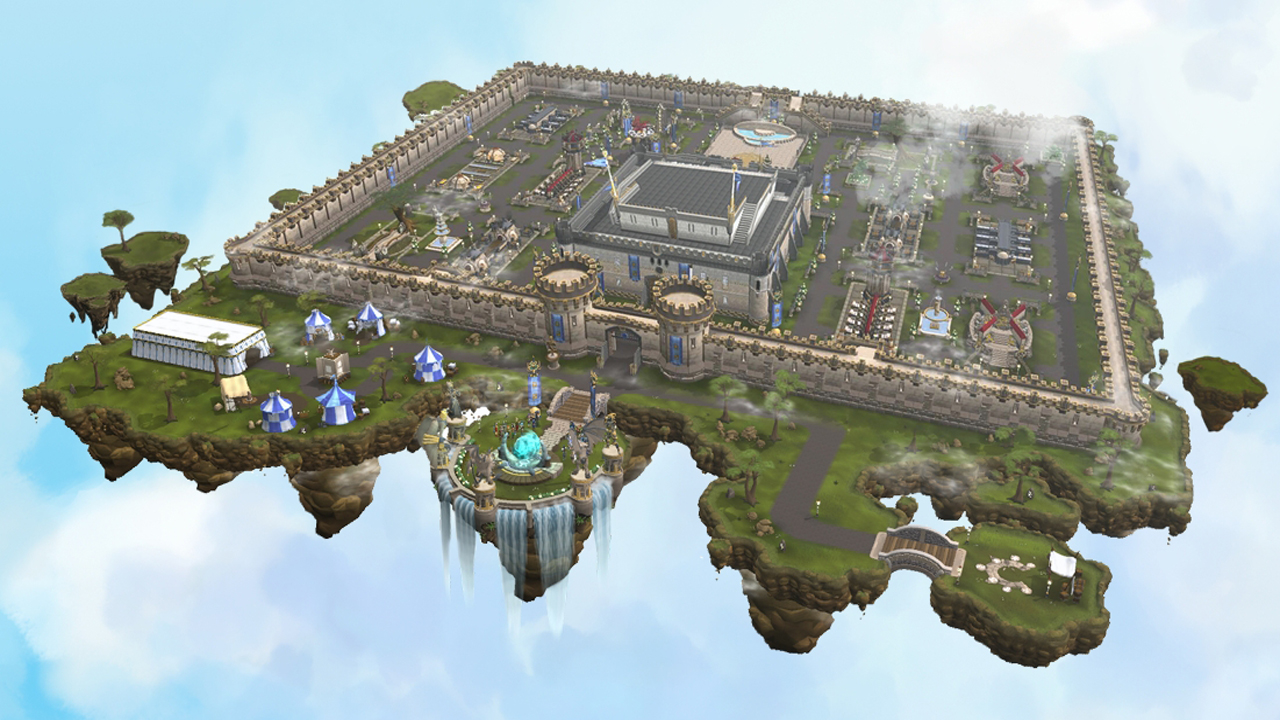
Castles in the sky - players become creators
The release of clan citadels and clan battlegrounds marks the moment that the designers start giving players design tools of their own--a brave move. Citadels are huge floating fortresses that can be customised by RuneScape guilds. These hovering superstructures contain meeting rooms, senate halls for voting on important clan matters, and meeting rooms for private deals. Instanced guild locations are nothing new in MMOs, but they're rarely so customisable, and it gives players a good place to vent. RuneScape players are all-too-happy to organise in-game riots if they disagree with a game update.
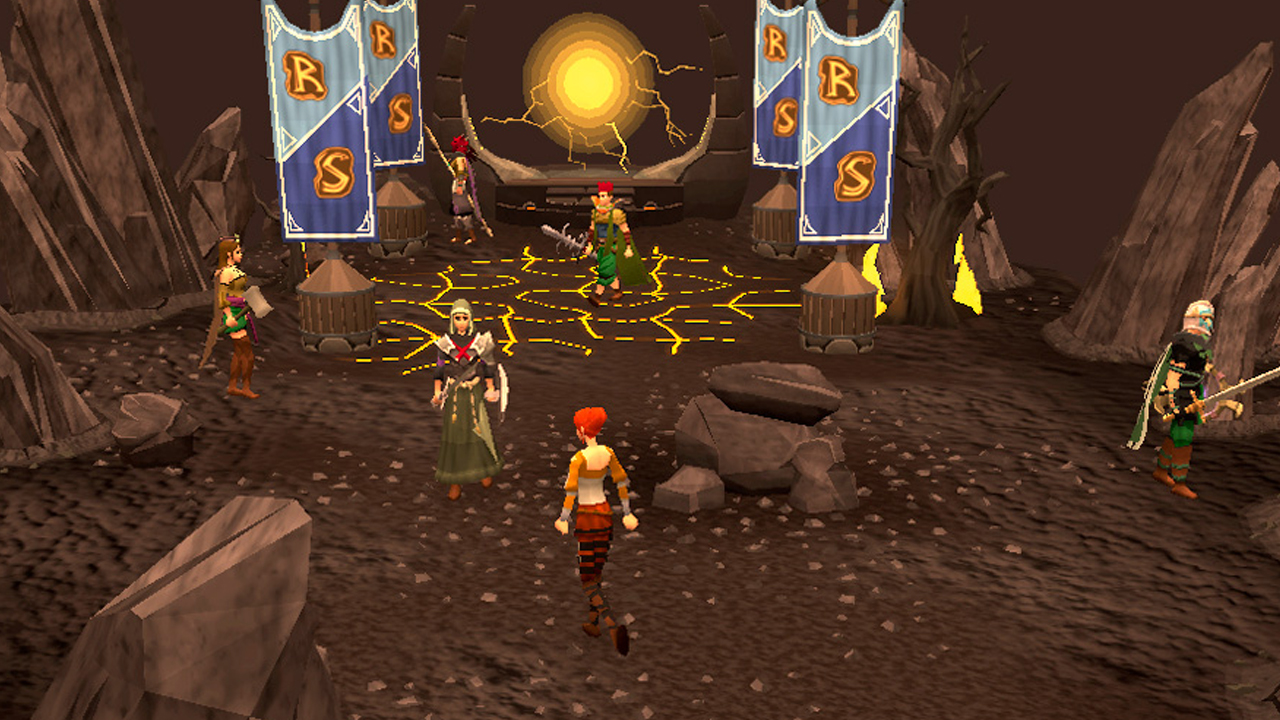
Player made arenas - the community starts to show off
The clan battlegrounds feature introduced alongside the citadel update is genuinely innovative. This lets players use a level editor to build player vs. player environments, complete with custom rules for combat encounters. The resulting battlegrounds are then saved and shared between clans.
This is possible thanks to RuneScape's relatively simple engine. For traditional big-budget MMOs the complex geometry involved would make a similar feature too unwieldy for public consumption. It also lets players bolt-on extra bits to the game they love, like a surprisingly workable fast-paced 'capture the flag' mode that's a smaller and more personal than Castle Wars.
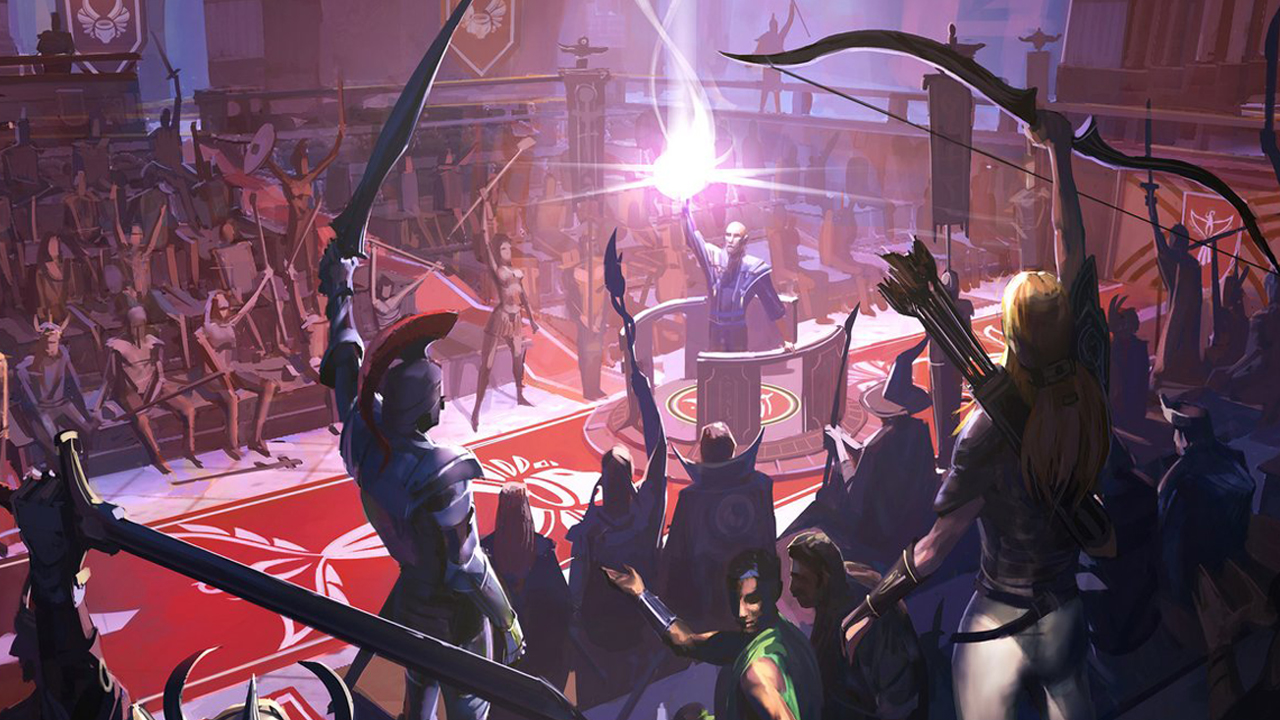
Evolution of combat - RuneScape goes to war
Jagex declares the Evolution of Combat update to be "one of the largest content updates in RuneScape's history" in 2012. It represents a complete reworking of RuneScape's ageing combat system that adds new abilities like dual-wielding, new magic and ranged weapons. A six month beta encourages players to test the changes, which are designed to buff ranged and magic classes and bring them in line with the dominant close-combat warrior class.
The update also adds an action bar that players can fill with skills, bringing it in line with the now-ubiquitous MMO interface popularised by WoW, and Everquest before it. This proves controversial, and the negative kickback to this and other updates eventually encourages Jagex to release a free, carefully preserved classic edition of the game called Old School RuneScape.
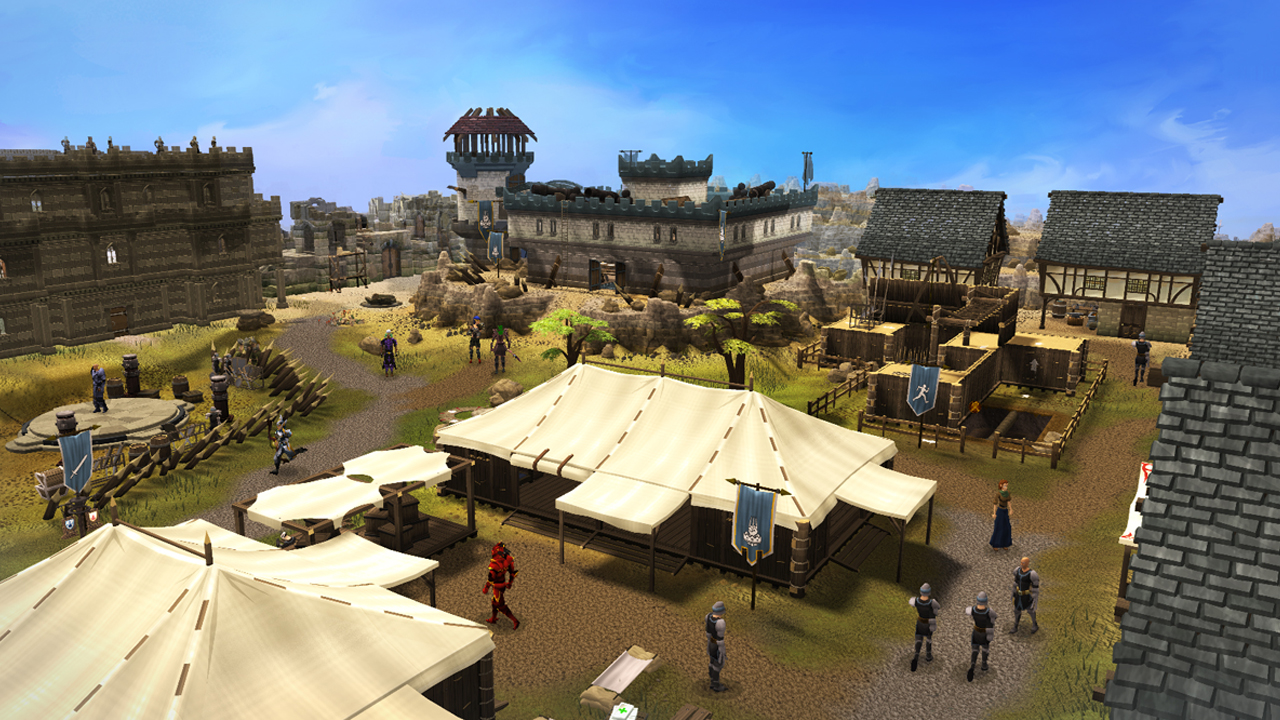
RuneScape 3 revealed - 2013
RuneScape 2 saw the game transition from 2D sprites to a 3D world. RuneScape 3 adopts HTML5 to give the world a massive visual update. It still can't match contemporary MMO releases like Guild Wars 2, Star Wars: The Old Republic and Rift, but for a browser-based experience it's an impressive leap that finally draws the camera down into the environment (which means the world even gets a sky for the first time). As well as a traditional third-person perspective, players are able to customise the game's UI, and the release of RuneScape 3 kicks off a bold dynamic quest series that's updated weekly by developers in response to player votes and behaviour.
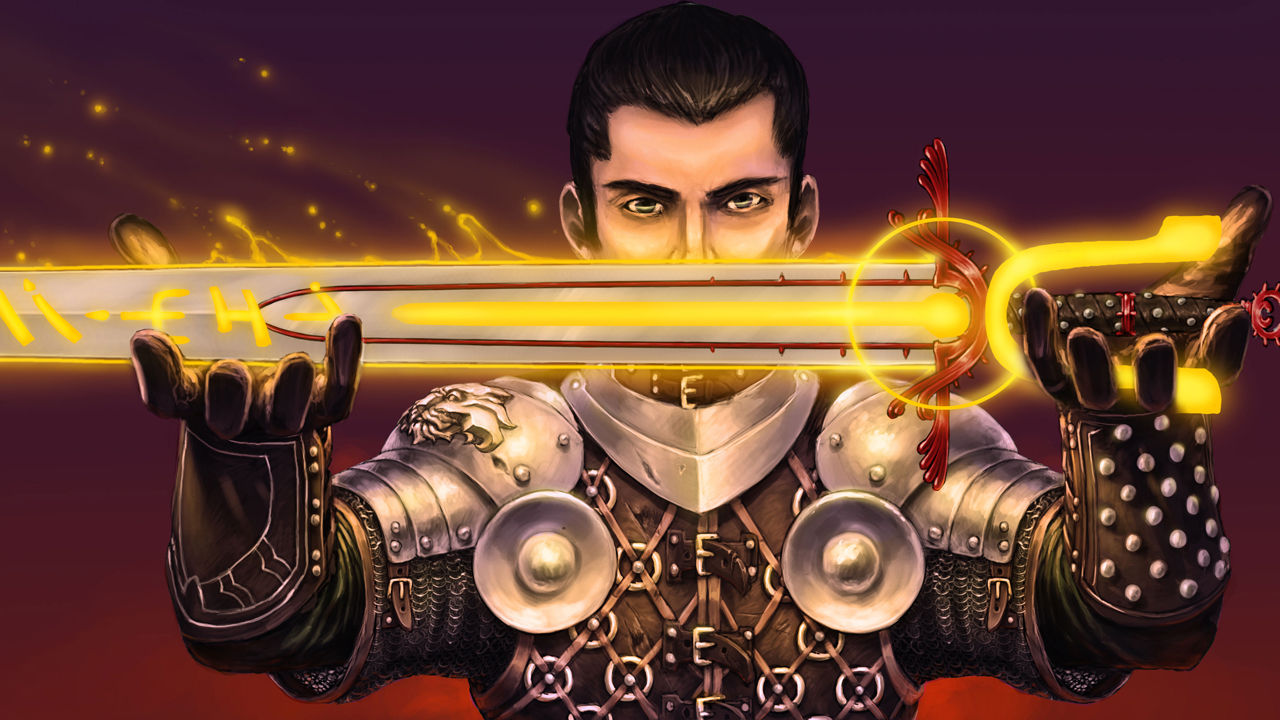
Bonds vs Bots - a unique approach to cheating
Bonds allow RuneScape's rich trading community to benefit directly from their investments. As Ogilvie explains, Bonds "provide players with the means to trade in-game effort for tangible benefits, including membership." It's an idea that proved hugely successful in Eve Online when CCP introduced PLEX--a system that allows players to pay for game time with in-game currency--back in 2008.
The system rewards loyal fans with free features, which is a good way to retain veteran players, but has a hidden second benefit. According to Ogilvie, "since Bonds launched on 26th September, the amount of wealth injected by illegal gold farmers into the free-to-play MMORPG has plummeted by 81 percent." In addition to gold farmers, the prevalence of bots has been a big issue for RuneScape. They took on the challenge head on in 2011, when they banned 1.5 million bots in a single day. Today botters are put on trial in Botany Bay--a courtroom that lets law-abiding players throw fruit at offenders locked into a set of digital stocks.
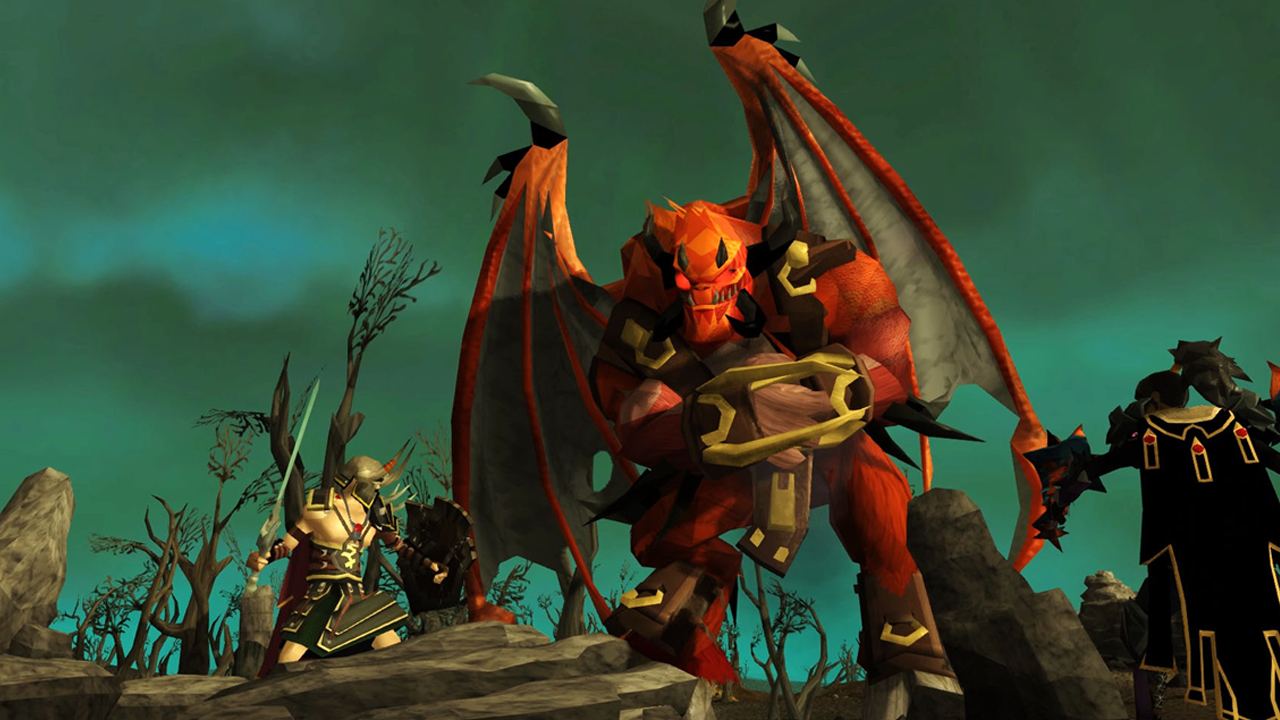
Dead cows and dynamic missions - some strange stats
RuneScape's enormous army of players have put in more than a million years of game time at this point, and it's a bloodbath out there. 2,076 cows are slain per minute, more than 250 players die every minute, along with 208 bosses. The launch of RuneScape 3 and a player-led adventure called the Battle of Lumbridge draws 100,000 lapsed players back into the fold. This ten-week world event pits the god of order against the god of chaos. Players join either side of the conflict and use tokens to vote on reinforcement decisions and repair strategies for the ruined town of Lumbridge. The responsive quest model is something Jagex are looking at closely for future updates as RuneScape continues to mutate, entertaining its growing audience on the periphery of the MMO gaming scene.
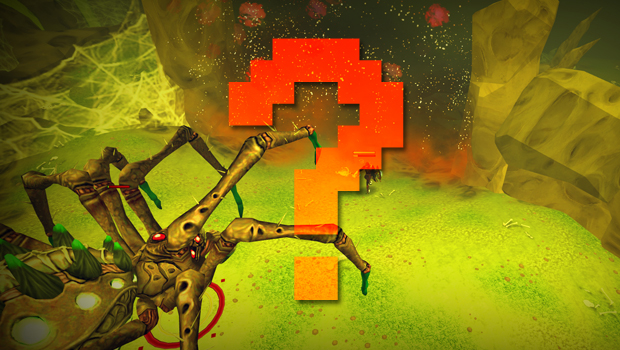
Consider yourself informed
There we have it, a brief introduction to the huge, changing world of RuneScape. It's still free to play (with a premium membership option), and you can find out more on the RuneScape 3 site. For nostalgic purposes, you can also check out Old School RuneScape. If you have memories of RuneScape in its various historical guises, do share them with us in the comments below.
Want more GR features? Here is one about 10 Ways MMOs Aren't Nearly As Cruel As They Used To Be, and another on The Best MMORPGs Out There.
GamesRadar+ was first founded in 1999, and since then has been dedicated to delivering video game-related news, reviews, previews, features, and more. Since late 2014, the website has been the online home of Total Film, SFX, Edge, and PLAY magazines, with comics site Newsarama joining the fold in 2020. Our aim as the global GamesRadar Staff team is to take you closer to the games, movies, TV shows, and comics that you love. We want to upgrade your downtime, and help you make the most of your time, money, and skills. We always aim to entertain, inform, and inspire through our mix of content - which includes news, reviews, features, tips, buying guides, and videos.


